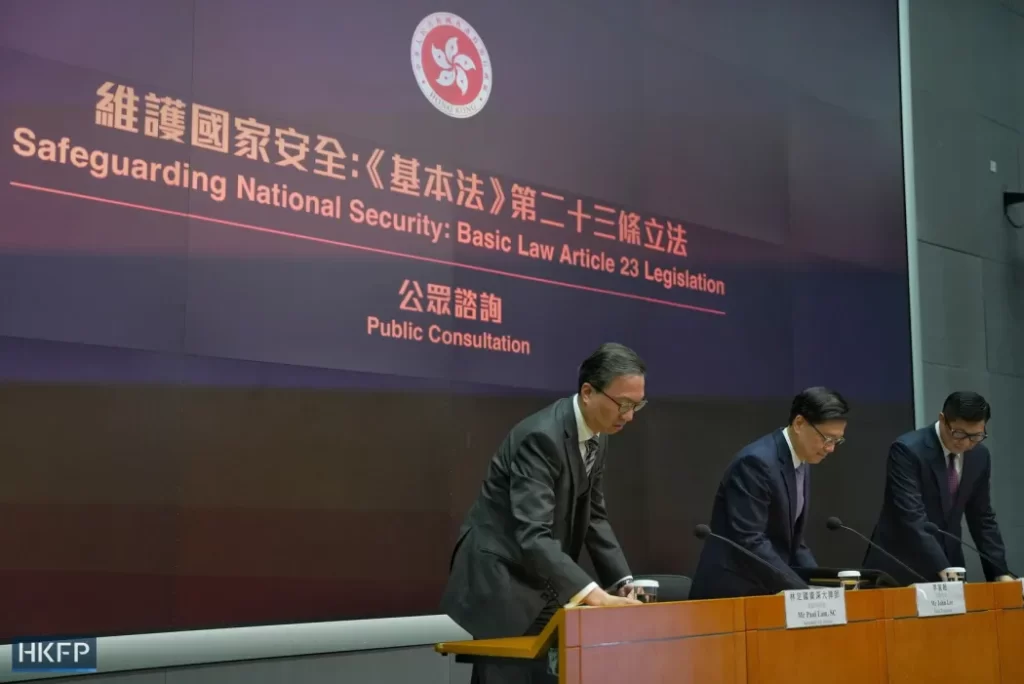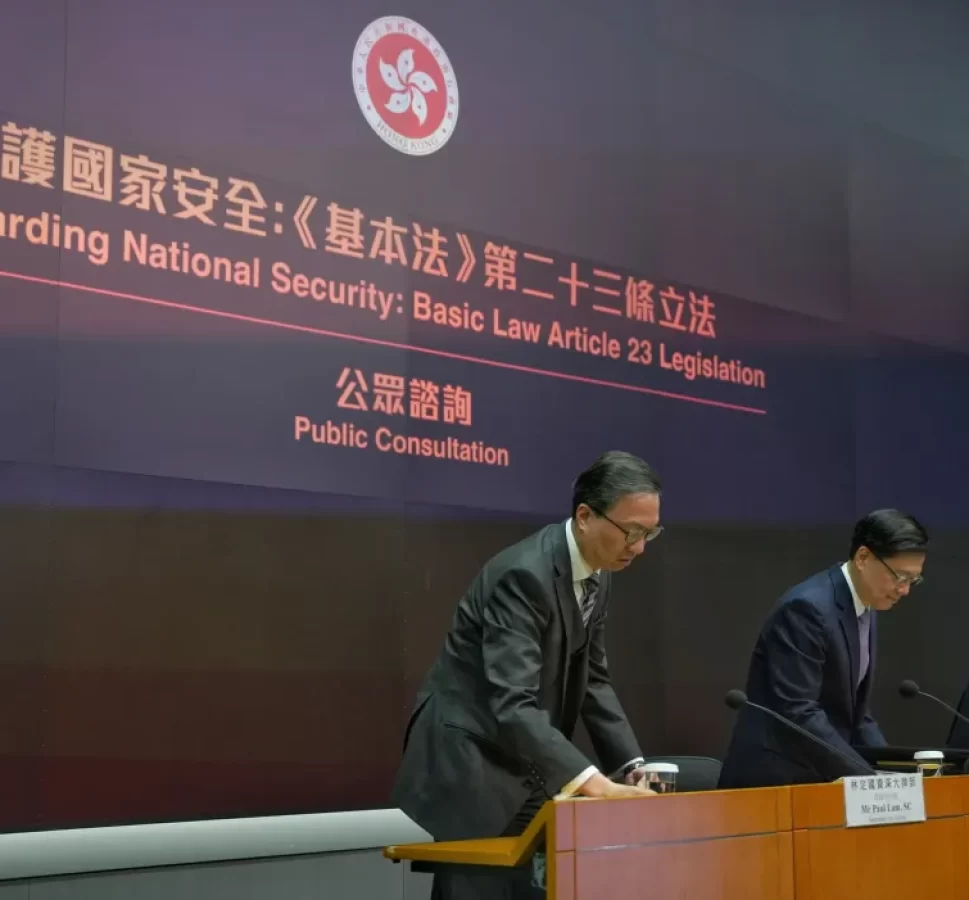
As legislation prompts global criticism, China accuses UK in particular of having ‘deep-rooted mindset as a coloniser’.
China has lashed out at international critics of Hong Kong’s national security law, accusing a number of countries of “slandering and smearing”.
The law, known as Article 23, was passed by Hong Kong legislators on Tuesday, attracting widespread criticism for its anticipated effects on fundamental freedoms in the China-ruled city.
China hit back on Wednesday, accusing the United Kingdom and the European Union, in particular, of being “hypocritical”.
Article 23, which comes on the heels of a China-imposed national security law passed in 2020, punishes a range of offences, including treason, sabotage, sedition, the theft of state secrets, external interference and espionage. Sentences range from several years to life imprisonment.
The new measures, designed to plug “gaps” in Beijing’s legislation, according to Hong Kong’s leader John Lee, immediately sparked condemnation from around the globe, prompting China to retaliate.
“China expresses strong dissatisfaction and firm opposition to certain countries and institutions slandering and smearing Hong Kong’s national security regulations,” foreign ministry spokesman Lin Jian told a press conference on Wednesday.
‘Hypocritical’
Britain’s foreign secretary David Cameron raised concerns on Tuesday about the fast-tracked legislative process, in what he called a “rushed” process for a law that would “further damage the rights and freedoms” in the city, a former British colony before the 1997 handover to China.
Cameron said the fast-tracked legislation undermined the Sino-British Joint Declaration, an internationally binding agreement signed in 1984 in which China agreed to run Hong Kong under the “one country, two systems” principle. The new law, he added, would affect Hong Kong’s reputation as an international city.
Singling out the UK for criticism on Wednesday, China’s foreign ministry office in Hong Kong urged the country to “give up on the fantasy of continuing its colonial influence in Hong Kong”.
“The United Kingdom has been making inflammatory and irresponsible comments on Hong Kong’s situation … it’s all due to the deep-rooted mindset as a coloniser and preacher,” said Beijing’s foreign affairs commissioner in a statement.
In an apparent reference to London’s own national security laws, the statement blasted Britain as being “hypocritical and exercising double standards”.
The commissioner’s statement also took aim at the EU, which had criticised the measure on Tuesday, saying it was concerned about the “potential impact on the rights and freedoms of the people of Hong Kong”.
The legislation could “significantly affect the work of the European Union’s office” and raised questions about “Hong Kong’s long-term attractiveness as an international business hub”, said the bloc.
The commissioner expressed “strong disaffection and opposition” to the EU’s comments, urging it to “envisage the strong appeal for the legislation in Hong Kong” and to “abandon its hypocritical double standards and prejudice”.
Chorus of criticism
Australia, Japan, the United States and the United Nations have also publicly criticised the law.
Australia’s foreign minister Penny Wong warned her visiting Chinese counterpart, Wang Yi, on Wednesday that the new law would “further erode rights and freedoms” and breach international commitments.
“The foreign minister raised her concerns about human rights in Hong Kong,” an Australian foreign ministry official told the AFP news agency, reporting remarks unlikely to have gone down well in Beijing. “Australia believes these laws have far-reaching impacts, including on individuals in Australia.”
Japan on Wednesday said it attached “great importance to upholding a free and open system and ensuring the democratic and stable development of Hong Kong”.
Japan “reiterates its grave concern about the passage of [Hong Kong’s national security law], which will further undermine the confidence in the “One Country, Two Systems” framework,” it said.
US Department of State spokesman Vedant Patel said on Tuesday that the US administration was “alarmed by the sweeping and what we interpret as vaguely defined provisions” in the law.
UN rights chief Volker Turk called the law and its “rushed” adoption “a regressive step for the protection of human rights”, saying it could lead to the “criminalisation of a wide range of conduct protected under international human rights law, including freedom of expression, peaceful assembly and the right to receive and impart information”.






